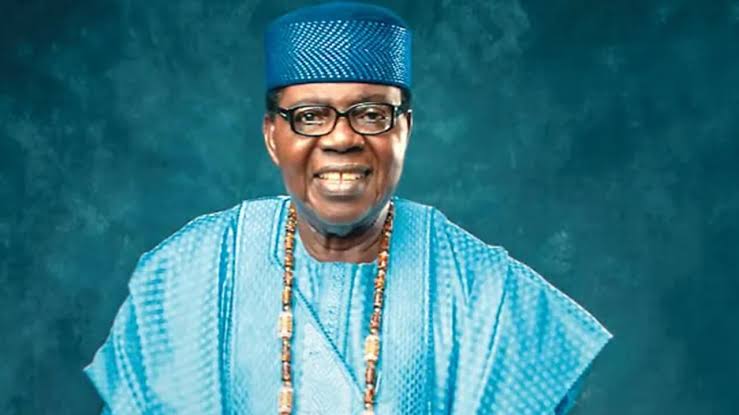
Shockwaves as Education Minister Proposes Two-Year NYSC Programme

In a move that has sparked intense debate across the country, Nigeria’s Minister of Education, Dr. Maruf Olatunji Alausa, has proposed a significant extension of the National Youth Service Corps (NYSC) scheme from its current one-year duration to a two-year programme. The announcement, which was made during a policy dialogue in Abuja, has ignited widespread reactions among students, graduates, education stakeholders, and concerned citizens, with many questioning the rationale, timing, and implications of such a proposal.
Dr. Alausa, who took office with promises of overhauling the educational sector and re-aligning its objectives with national development goals, described the proposed extension as a strategic measure to deepen youth involvement in national service, enhance skill acquisition, and strengthen patriotism. According to the minister, the extra year would not only be focused on military-style orientation or community service but would introduce a structured vocational and entrepreneurship development phase to equip corps members with practical tools for self-reliance.
While presenting his vision, Dr. Alausa emphasized the need for Nigeria to move beyond the theoretical approach of youth service and embrace a model that produces job creators rather than job seekers. He noted that the current NYSC structure, though commendable, does not go far enough in preparing Nigerian graduates for the realities of the job market or national development demands. “It is time we take bold steps. The NYSC programme must evolve beyond what it is today. We want to create a system where our graduates not only serve their country but also leave the programme with viable business skills, digital competencies, and entrepreneurial confidence,” he said.
The minister explained that the first year of the new structure would retain the traditional three-week orientation camp and primary assignment, while the second year would be dedicated to capacity building through partnerships with industries, vocational centres, and tech hubs. He also mentioned that under the new proposal, corps members would receive specialized training in areas such as agriculture, ICT, creative arts, education, and public health. These sectors, he stressed, are crucial for Nigeria’s long-term economic growth and human capital development.
However, the proposal has been met with a mix of skepticism, criticism, and support. Social media platforms lit up with reactions as soon as the news broke, with thousands of Nigerian youths expressing concern over the feasibility and intentions behind the plan. For many undergraduates and recent graduates, the idea of extending the NYSC scheme translates into a delay in their career plans, further exposure to hardship, and prolonged economic uncertainty.
Some argued that the existing one-year NYSC programme already suffers from systemic issues such as poor funding, inadequate welfare for corps members, unsafe postings, and limited impact on national development. Adding an extra year, they contend, could worsen these problems if foundational challenges are not first addressed. Critics also highlighted the country's current economic struggles, insecurity, and high youth unemployment as reasons why such a reform should be carefully re-evaluated.
A graduate of the University of Lagos who recently completed her service in Niger State said, “It’s difficult to understand how extending NYSC to two years would solve any of the real problems we face. Many of us serve in places where there are no meaningful opportunities. We barely survive on the current allowance, and there’s no clear career path after NYSC. I think the government should fix the existing problems first.”
On the other hand, some education policy analysts have described the minister’s proposal as ambitious but potentially impactful if implemented properly. They argue that with the right funding, infrastructure, and collaboration between government and private sectors, the extended NYSC scheme could become a transformative platform for youth empowerment. By providing more time and resources for corps members to develop practical skills and launch small businesses, the programme could help tackle the country’s unemployment crisis in the long term.
The NYSC, established in 1973, was originally conceived to foster unity and reconciliation in the post-civil war era by posting graduates to different parts of the country for national service. Over the decades, the programme has evolved but has often faced criticisms regarding its relevance and efficiency. Calls for reform have increased in recent years as economic pressures and job scarcity push many young Nigerians to seek opportunities abroad or in informal sectors.
The Minister’s two-year proposal appears to be the most radical attempt yet to redefine the NYSC’s purpose. Dr. Alausa stated that he would be submitting the proposal to the Federal Executive Council for consideration and that wide consultations with stakeholders, including the National Assembly, state governments, and youth groups, would be undertaken before any official policy is rolled out. He assured Nigerians that the final decision would reflect the best interests of the youth and the nation at large.
Meanwhile, some lawmakers and former corps members have weighed in on the matter, urging caution and demanding more clarity on how the extended programme would be funded and implemented. There are also concerns about the legal framework of the NYSC Act, which currently mandates only one year of compulsory service. Any modification to the duration of the programme would require legislative backing and constitutional amendments.
The Nigerian Labour Congress (NLC) and the Academic Staff Union of Universities (ASUU) have yet to release official statements on the matter, but insiders suggest that internal discussions are ongoing. Civil society groups have called for public hearings and open debates before any decision is made, warning that unilateral reforms could deepen mistrust between the government and young Nigerians.
As the nation watches closely, the coming weeks are expected to see a flurry of engagements, protests, and policy meetings. Whether the proposed two-year NYSC will become a reality or remain a controversial suggestion will depend on the political will, public response, and the ability of the Education Ministry to build a credible case for change.
In a country where youth represent over 60% of the population and where graduate unemployment remains one of the most pressing challenges, any policy targeting this demographic is bound to trigger strong emotions. For now, one thing is certain: the debate over NYSC’s future has just begun, and its outcome may reshape the lives of millions of Nigerian youths for years to come.


